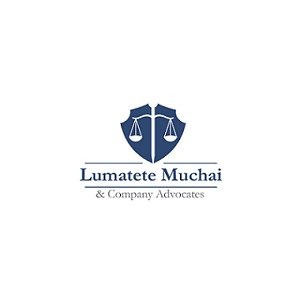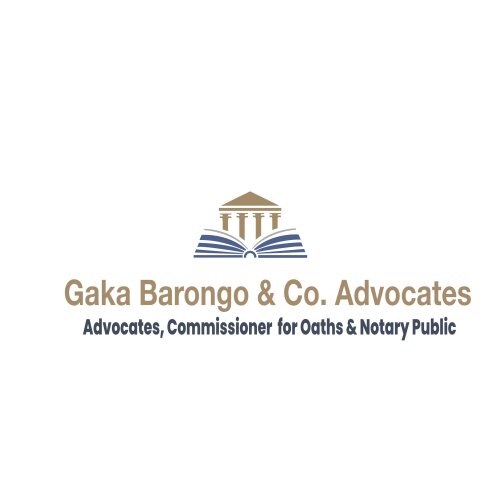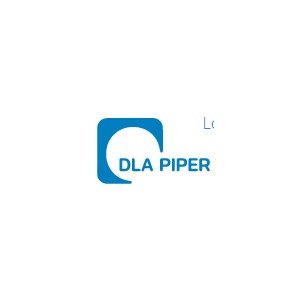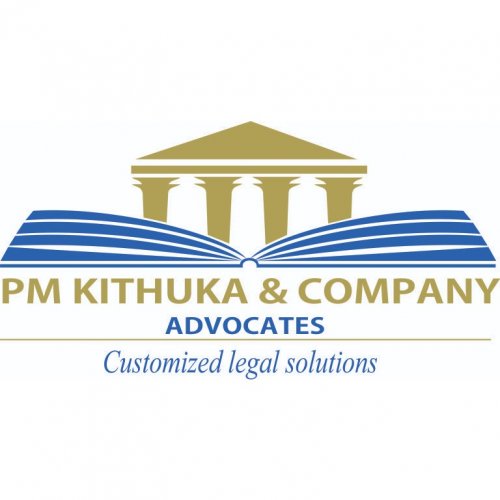Best Tax Increment Financing Lawyers in Nairobi
Share your needs with us, get contacted by law firms.
Free. Takes 2 min.
List of the best lawyers in Nairobi, Kenya
Legal guides written by Adroit Law LLP:
- Kenya Launches Digital Nomad Visa: A Gateway for Remote Workers
- Navigating the Payment System License Maze in Kenya
- Navigating the Complexities of Mining Licenses and Permits in Kenya: A Look into Artisanal and Large-Scale Operations
About Tax Increment Financing Law in Nairobi, Kenya
Tax Increment Financing (TIF) is a method used by local governments to promote economic development and infrastructure improvements. In Nairobi, Kenya, TIF is designed to encourage the development of underperforming or distressed areas by using the future tax gains from the increased property values to finance the improvements. The idea is to stimulate private investment, generate employment opportunities, and revitalize neighborhoods, all while eventually expanding the tax base. Although TIF is a relatively new concept in Kenya, its potential for urban renewal and development is significant.
Why You May Need a Lawyer
Involvement in a Tax Increment Financing project can be complex and require significant legal navigation. Here are some common situations where legal expertise may be necessary:
- Understanding the legal framework and criteria for establishing a TIF district in Nairobi.
- Negotiating agreements between local authorities and private developers or investors.
- Ensuring compliance with local laws and regulations governing TIF projects.
- Addressing disputes or legal issues that may arise during the development process.
- Assistance with contract drafting, reviewing, and enforcement.
- Guidance on potential tax implications and financial structuring of a TIF project.
Local Laws Overview
The key legal aspects of Tax Increment Financing in Nairobi include the following:
- Eligibility Criteria: Specific criteria determine which areas can be designated as TIF districts. These often include measurable factors like levels of blight or underdevelopment.
- Governing Legislation: Local government acts and national regulations provide the legal framework for creating and managing TIF districts. These laws are integral to understanding the specifics of TIF regulation and compliance.
- Revenue Allocation: Laws dictate how the increment in taxes is used exclusively for financing the improvements within the TIF district until the project is paid off.
- Approval Process: There is a formal process including public notices, hearings, and approvals that must be followed to establish a TIF district.
- Oversight and Transparency: Regulations ensure that TIF projects are managed transparently with accountability measures in place to track the project’s progress and financials.
Frequently Asked Questions
What is Tax Increment Financing?
Tax Increment Financing is a tool for promoting development and infrastructure improvement by using future tax gains from property value increases to fund current projects.
Who benefits from TIF projects?
Benefits can include local communities through improved infrastructure and increased job opportunities, property owners by increased property values, and local governments by an expanded tax base.
Are there risks associated with TIF?
Yes, potential risks include the failure to meet projected tax increments, financial mismanagement, and possible displacement of existing residents or businesses.
How is a TIF district established in Nairobi?
A TIF district is established through a legislative process that involves identifying eligible areas, creating a project plan, holding public hearings, and obtaining necessary approvals from government authorities.
Do TIF funds cover operational costs?
No, TIF funds are generally restricted to capital improvements and infrastructure development, not operational costs or maintenance.
How long does a TIF district last?
The duration may vary based on the specific project or legal guidelines, but TIF districts typically last until the project costs are repaid or for a defined period, often twenty to thirty years.
Can property owners oppose a TIF district designation?
Yes, property owners can participate in public hearings and express their opposition during the approval process.
Are TIF projects suitable for all types of development?
A TIF is generally most suitable for larger scale projects where future property taxes are sufficient to justify the initial investment.
How does TIF affect existing local taxes?
Existing tax levels are generally maintained, but the increment in tax revenue from increased property values goes towards financing the TIF project.
Who manages a TIF project?
A TIF project is typically managed by a combination of local government entities and private developers, often with oversight committees to ensure transparency and compliance.
Additional Resources
For more information or guidance on Tax Increment Financing, consider contacting:
- Local Government Offices: Nairobi City County offices can provide official documents and information about TIF policies and projects.
- Kenya Urban Roads Authority (KURA): KURA may offer insights on infrastructure developments linked to TIF projects.
- The Kenya Institute for Public Policy Research and Analysis (KIPPRA): They offer reports and analyses that might feature insights on TIF and urban development.
- Local Bar Associations: Can help connect individuals with experienced lawyers specializing in TIF.
Next Steps
If you need legal assistance with Tax Increment Financing matters in Nairobi, follow these steps:
- Research: Learn as much as you can about TIF from available resources and understand your specific needs.
- Consult a Lawyer: Seek out legal professionals who specialize in TIF to gain informed advice and representation.
- Prepare Documentation: Gather necessary documents, including any plans, contracts, and correspondence, for your lawyer to review.
- Engage with Stakeholders: If applicable, communicate with potential stakeholders such as government representatives and community leaders.
- Monitor Progress: Work closely with your lawyer to ensure compliance and proper management of your interests throughout the project.
Lawzana helps you find the best lawyers and law firms in Nairobi through a curated and pre-screened list of qualified legal professionals. Our platform offers rankings and detailed profiles of attorneys and law firms, allowing you to compare based on practice areas, including Tax Increment Financing, experience, and client feedback.
Each profile includes a description of the firm's areas of practice, client reviews, team members and partners, year of establishment, spoken languages, office locations, contact information, social media presence, and any published articles or resources. Most firms on our platform speak English and are experienced in both local and international legal matters.
Get a quote from top-rated law firms in Nairobi, Kenya — quickly, securely, and without unnecessary hassle.
Disclaimer:
The information provided on this page is for general informational purposes only and does not constitute legal advice. While we strive to ensure the accuracy and relevance of the content, legal information may change over time, and interpretations of the law can vary. You should always consult with a qualified legal professional for advice specific to your situation.
We disclaim all liability for actions taken or not taken based on the content of this page. If you believe any information is incorrect or outdated, please contact us, and we will review and update it where appropriate.

















